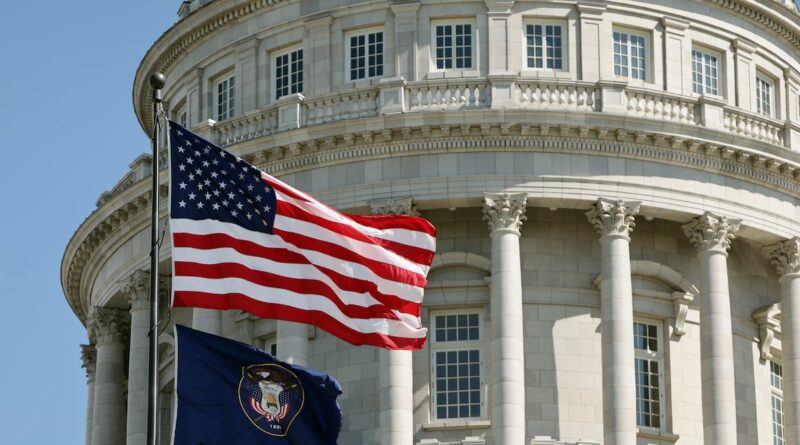Just how strong is Utah’s economy? This is why the country’s legal leader is ‘under arrest’
The state’s economy continues to be strong, leaders of the Utah Legislature were told Tuesday.
“I’m actually very pleased with the report,” Senate President Stuart Adams, R-Layton, said after legislative staff updated the Appropriations Act on economic indicators. “When you look at wages and salary growth, we’re growing faster than the national average.”
That encourages consumer spending, the Senate president said, because Utahns “probably feel better” about the economy than most Americans since consumer sentiment is low nationwide. “If this is a recession, we’re weathering it pretty well, it seems.”
The country’s chief economist, Andrea Wilco, later clarified to the committee that “we are not in a recession. We are growing, but at a much slower pace than we were post-pandemic.” a (COVID-19).” He described it as “going from extreme to normal growth. Slow down, but definitely within range. ”
Adams also cited mortgage debt falling to 4% of income from about 8% in 2008. That’s lower than other consumer debt, such as credit card debt, the price of autos and student loans, which is currently 5.8%. historical average.
But Wilco pointed out that the decline in mortgage rates is due to people holding off on downgrading mortgages, confirming the housing market.
He said: “In other words, it is better that people do not increase their number of debts.
The update emphasized that consumer sentiment in Utah remains high as the state’s income and spending continue to grow.
“Historically, Utahns feel more confident than the national average when it comes to their outlook on the economic future. And as you can see, that’s still holding up today, as Utahns age 83 and national consumer sentiment at 67.9,” labor economist Alejandra Rodriguez told the committee.
Rodriguez said the country’s unemployment rate was “rising” and “inciting fear” in July when it reached 4.3% because it appeared to be a sign of a recession. But he suggested that it was a false alarm, because that sign could be “slyly alarming as the workforce increases rapidly.”
In Utah, unemployment was 3% during the same period, still low compared to historical rates, Rodriguez said. In addition, Utah still has a lot of immigration, so he said that could mean that “the increase in unemployment could be caused by an increase in supply rather than a decrease in demand for workers.”
He said that there are many jobs being added, but the pace of growth is slowing down.
“After 3½ years of growing labor demand, these declining job openings may sound like a big difference. However, as you can see from the chart, we are seeing more job openings. more than that we have people who are not working even close,” said Rodriguez.
Wages and salaries are “above” Utah’s growth rate of 5.8% since 2000, he said, at 7.34% compared to 4.74% nationally. “We saw solid wage growth last month, which should help support consumer spending. Overall, the labor market appears to be tightening, but remains strong by many measures. .”
And inflation continues to moderate, below national incomes and wage growth below 3%. Another labor economist, Jared Gibbs, told the committee that “what this means is that the purchasing power of consumers has been increasing over the last few years even when we account for inflation.”
Housing costs remain high, however, Gibbs said, despite the expected rate cut by the Federal Reserve.
House Budget Chairman Val Peterson, R-Orem, was also pleased with the report.
“It certainly shows that Utah is on the right track and continues to be a strong economy,” Peterson said. “We hope to continue like that in the future.”
#strong #Utahs #economy #countrys #legal #leader #arrest
